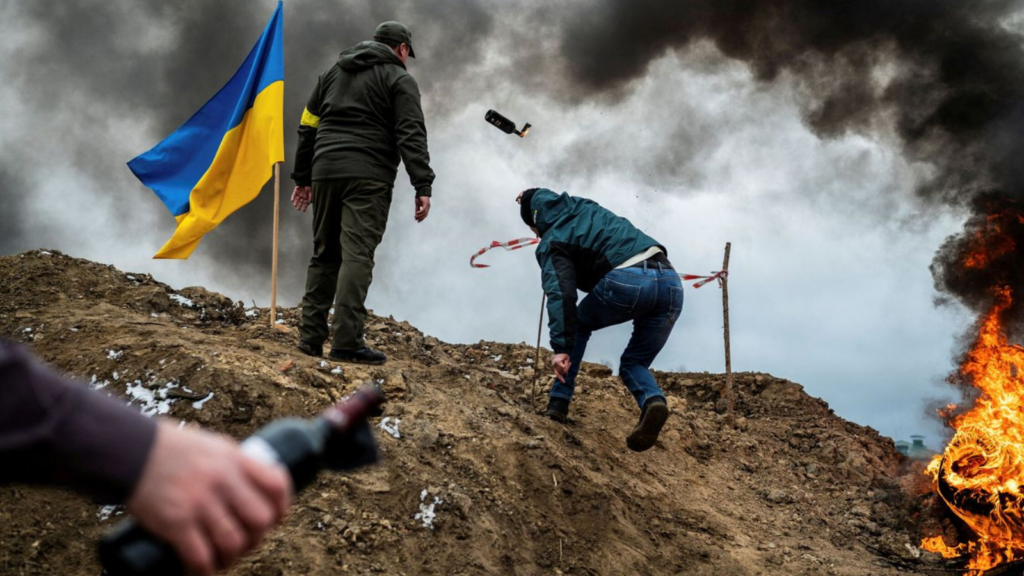Rubble, sirens, fear of bombs… Olena Ostapchenko, a resident of Kharkiv, Ukraine’s second largest city constantly attacked by Russian invasion forces, has the impression of living in the middle of a movie about World War II.
“This is very similar to that war that we knew through books and films”, widely spread in the dissolved USSR, which Ukraine was part of, this editor of a news site tells AFP on-line.
His city, which in normal times has 1.4 million inhabitants, and is located about 40 kilometers from the Ukrainian-Russian border, is on the front line of the invasion launched a week ago by Vladimir Putin.
Since the first day of the offensive, bombs and missiles have fallen almost daily, killing dozens and destroying administrative and residential buildings, as was the case during the 1940s.
Olena still can’t believe the prevailing “naïveté” that, she explains, preceded the Russian attack. “We thought that in the 21st century the Russians were not going to bomb us,” she said.
A week after the start of the invasion, he remains in his apartment on the 16th floor of a residential tower, in the heart of Kharkov, and believes that “he is lucky”. “At home, the window panes have not yet been broken,” she notes.
Together with his son, a 25-year-old actor, his companion and their two cats, “they live between the corridor and the bathroom”, considering it safer to stay there than to go out and find an underground shelter.
Going outside can be fatal: several civilians have died in Ukraine while trying to leave their homes to buy food.
“Today, which is quite calm, life is a little more dynamic,” but “when a plane flies over, what returns is absolute terror. It’s like in the war films of our childhood,” says Ostapchenko.
When Russian bombs pulverize the historic center – an 18th-century Orthodox cathedral was badly damaged on Wednesday – for me “it’s like being cut into pieces,” he adds.
Stay despite the bombs
Before the start of the bombing, Ostapchenko planned to “stay in the city, occupied or not, to protect it.” But “against bombs and missiles I can do nothing,” he admits.
Two days ago she was ready to leave, but her son, a volunteer at a hospital, refused to follow her. She therefore, she chose to stay.
Alone, “I would go crazy. Here, I can at least “dissuade him from trying to risk his life less,” she explains.
His city, once hectic, capital of Soviet Ukraine for a short time, is now unrecognizable: public transport does not work and the few people who take to the streets walk or ride bicycles.
The Kharkov metro, like the one in the capital Kiev, has become a huge air-raid shelter. Sometimes they suffer power cuts, drinking water or heating.
Supermarkets are only open for a few hours in the morning and it is not possible to find much on the shelves either: some biscuits, cereals (…) And sometimes, with luck, you can even find meat, Ostapchenko points out.











